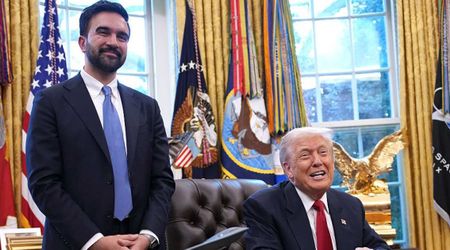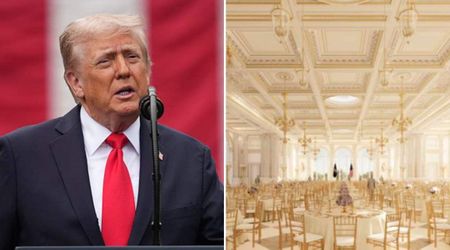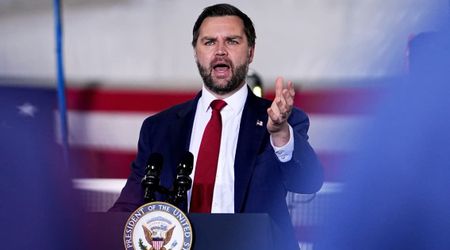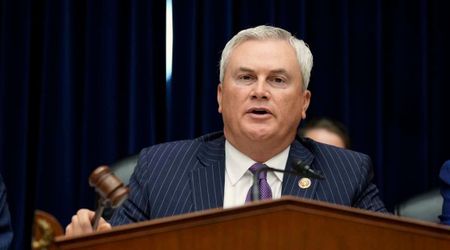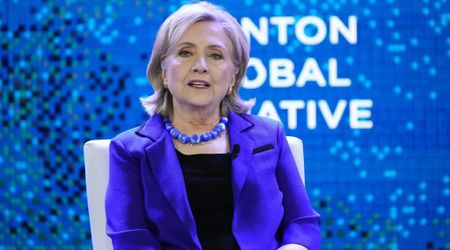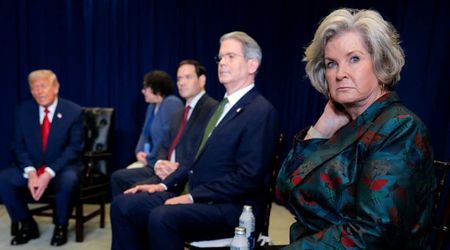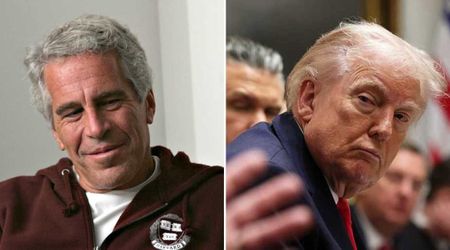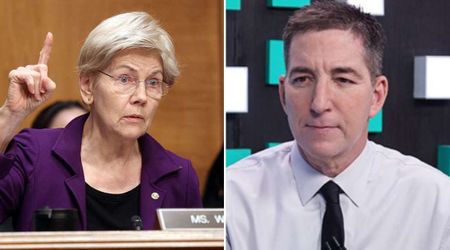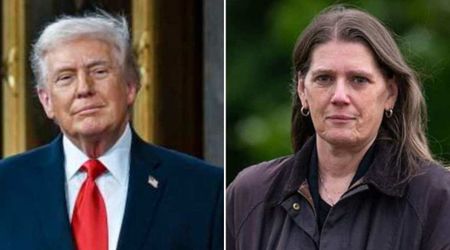Donald Trump's bold executive order to fight 'election fraud' may strip 21.3M voters of their rights

WASHINGTON, DC: Donald Trump is making some big, bold moves to reshape how elections are run in America.
With a signature on a new executive order, the president is rolling out some of the most radical changes ever to make elections “free, fair, and honest.” However, this could strip millions of people off voter rolls and create an electoral shake-up like never before.
Proof of citizenship and mail-in ballots
At the heart of Trump’s order is a tough new rule: if you can’t prove you’re a US citizen, you can’t vote. That means anyone registering for a federal election will now need to show "documentary proof" of their citizenship—such as driver’s licenses, birth certificates, or passports.
Not just that, but the order demands all ballots be received by Election Day—no more waiting for mail-in ballots to trickle in after the fact. To reinforce this, he’s calling for a citizenship question on federal voting forms.

Furthermore, the federal government will now be working hand-in-hand with state and local officials to verify voter information, cutting down on any potential funny business at the ballot box.
Trump is also killing off the “postmarked by” rule for mail-in voting. Right now, 18 states (plus Puerto Rico) allow ballots to count if they’re postmarked by Election Day but arrive a little later. Under Trump’s new order, however, every single vote has to be cast and received by Election Day.
And that’s not all. The order also calls for a review of voter registration databases by the Department of Justice, limits the use of electronic ballots, and threatens to withhold federal aid from states that don’t follow the new rules.
Voting rights advocates sound alarm amid Trump's war on election fraud
Naturally, not everyone is thrilled about these changes. Voting rights groups are already up in arms, arguing that these new requirements could disenfranchise millions of voters.
According to the Daily Mail, studies show that about 21.3 million voting-age Americans (or 9% of eligible voters) don’t have immediate access to proof of their citizenship.
And that’s not even touching the nightmare scenario for married women who changed their last names. With birth certificates listing maiden names, they could hit major roadblocks trying to register—a problem that’s already popped up in places like New Hampshire, which recently introduced a similar citizenship requirement.
None of this should come as a shock—Trump has been on a mission to tighten election rules ever since losing to Joe Biden in 2020. He’s never been shy about calling elections “rigged” and has gone after mail-in voting hard, even though plenty of Republicans rely on it.
That said, the new order shows he’s not waiting around for Congress to act. The Safeguard American Voter Eligibility Act (SAVE Act)—which would do much of the same—has been floating around Capitol Hill, but Trump is jumping ahead and making it happen right now.
According to his order, the US has “failed to enforce basic and necessary election protections”—and he’s dead set on making sure that changes.
Federal agencies are now involved despite legal challenges
Trump’s order also puts several federal agencies on high alert. Agencies like the Department of Homeland Security, the Social Security Administration, and the State Department are now required to work with election officials to flag noncitizens and clean up the voter rolls.
Trump wants the Attorney General to "prioritize enforcement of federal election integrity laws" and punish states that don’t cooperate with federal efforts to prosecute election crimes. So if states don’t play ball, they could kiss their federal funding goodbye.
Of course, the US Constitution could prove to be a huge roadblock ahead. Election rules are largely decided by individual states, and Trump’s sweeping new order is almost guaranteed to face major legal challenges.
While Congress has stepped in to pass major election laws before (such as the Voting Rights Act), the Constitution makes it clear that states have primary control over how elections are run.

Even legal experts are skeptical. Justin Levitt, a constitutional law professor and former White House policy adviser under Biden, pointed out that Trump’s executive order could push federal power too far.
While agencies like the Election Assistance Commission and Cybersecurity and Infrastructure Security Agency already play roles in elections, they don’t control how states run their voting systems.
But that hasn’t stopped Trump before. He’s already rescinded Biden’s 2021 executive order that pushed for more voter registration—something Republicans called federal overreach.
Trump’s got his eye on voting machines too
Trump’s order is also cracking down on voting technology. He’s telling the Election Assistance Commission to ban voting systems that rely on barcodes or QR codes for counting votes, arguing that they’re ripe for manipulation.
The EAC will only hand out funding to states that follow these new guidelines, so election offices will need to fall in line or risk losing financial support.
As Trump signed the order Tuesday, he called out the supposed election fraud and declared, “This will end it, hopefully.”
He promised that even more election actions are coming in the next few weeks.

